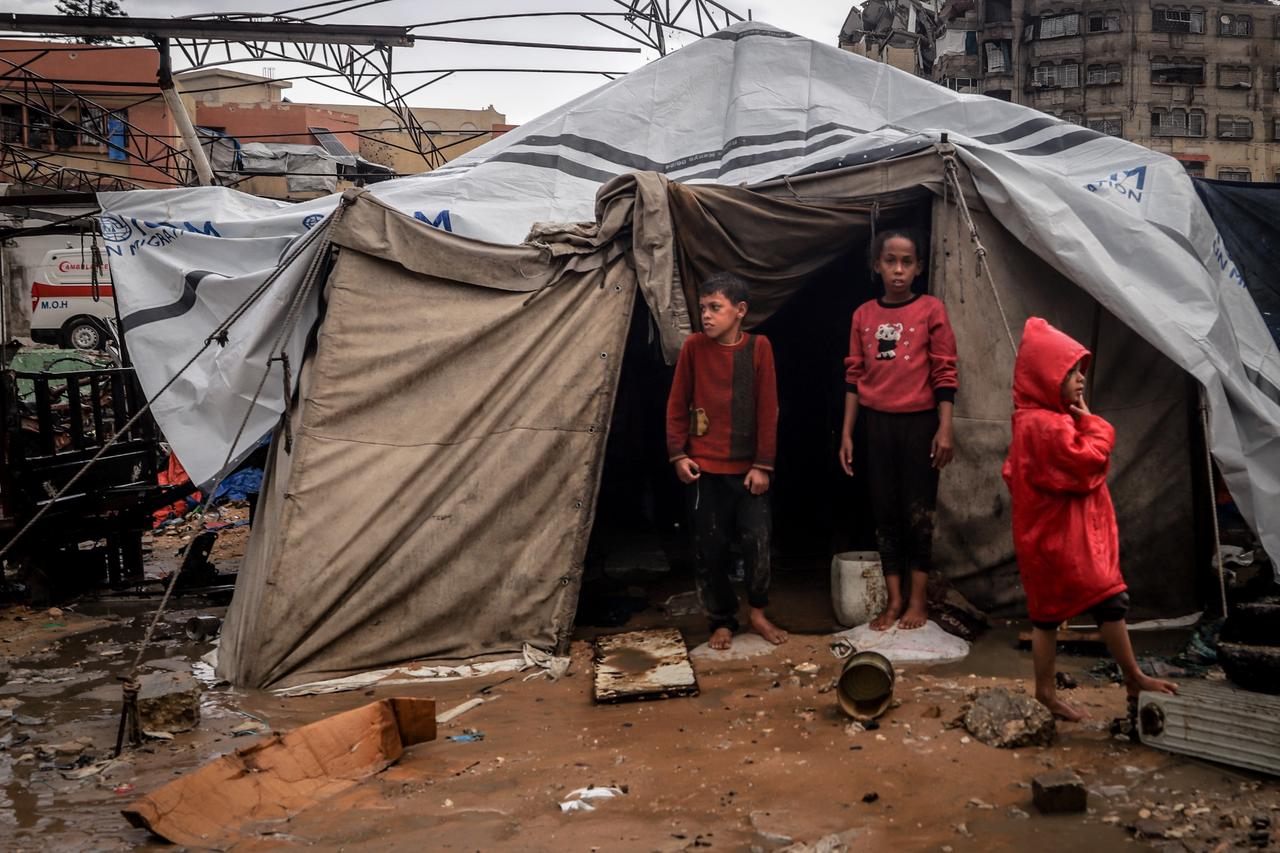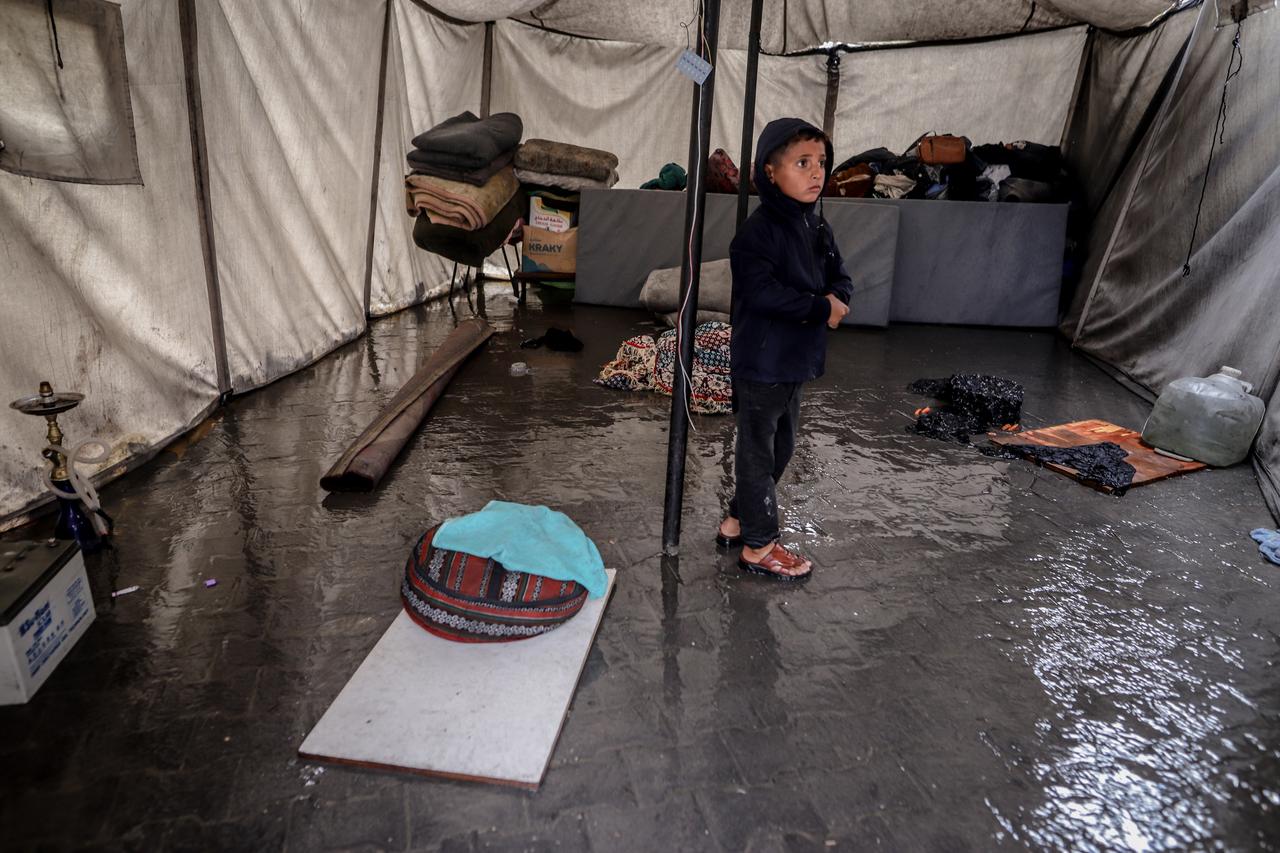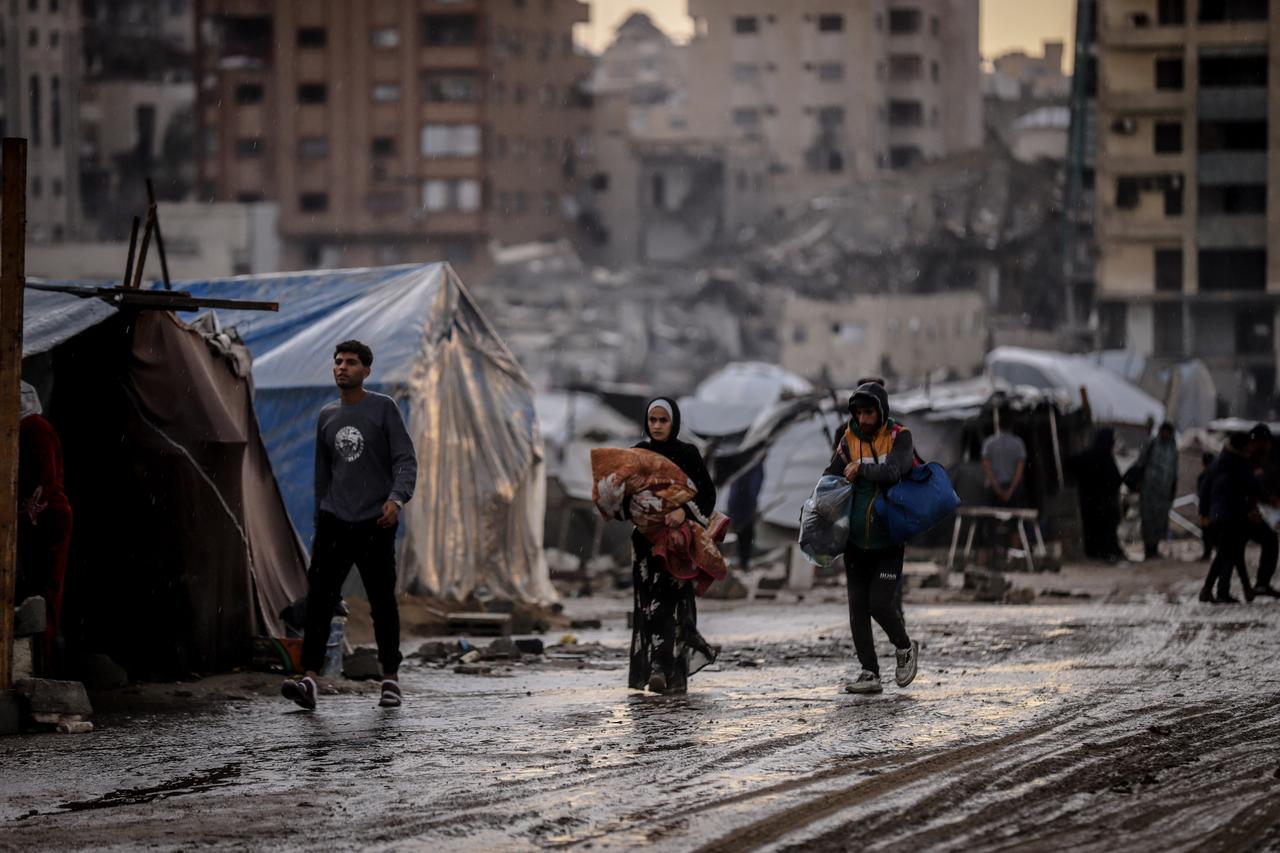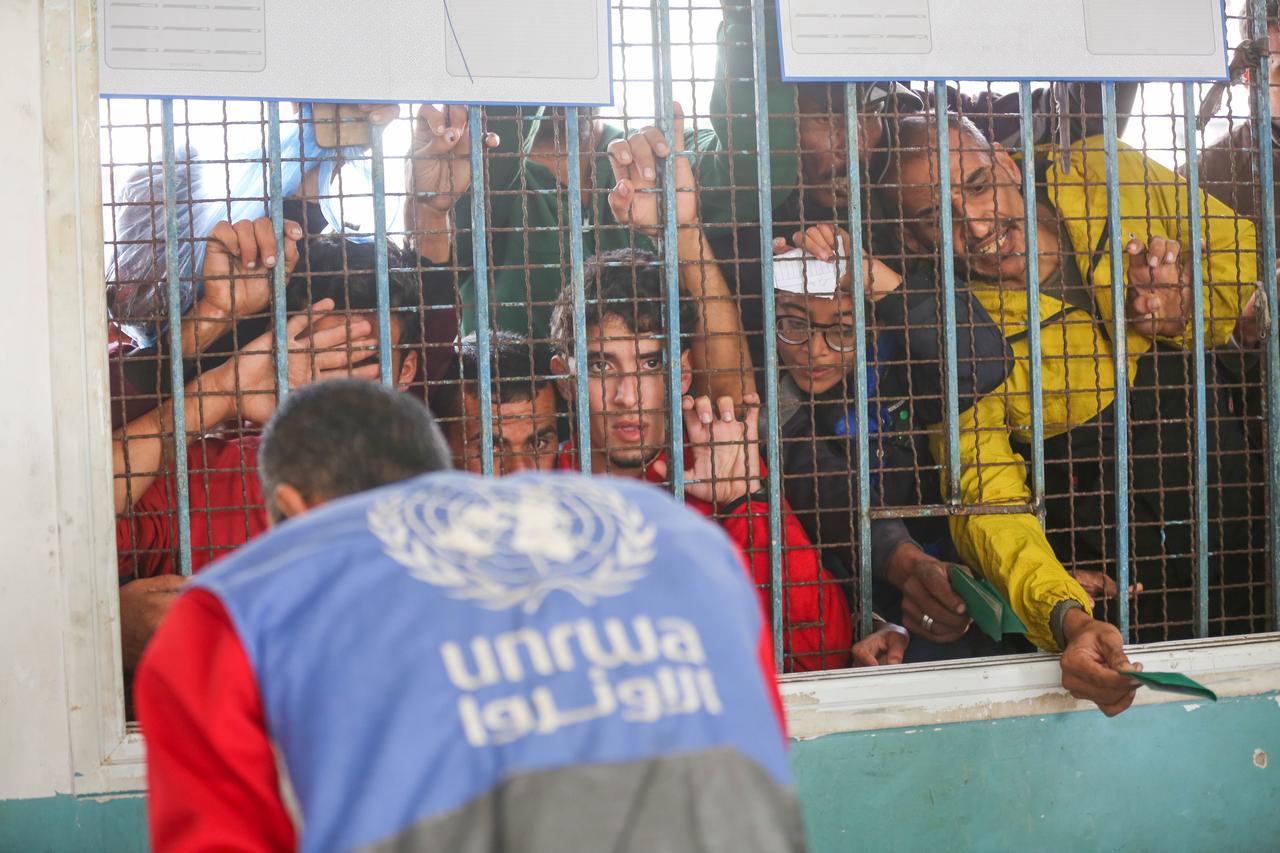
The U.N. agency for Palestinian refugees (UNRWA) called Saturday for the entry of shelter materials into the Gaza Strip as heavy winter rains flooded dozens of tents sheltering displaced Palestinians, worsening already dire humanitarian conditions.
“Winter has come to Gaza,” UNRWA wrote on X, warning that heavy rainfall is making conditions “even more desperate” for families sheltering in makeshift tents.
The agency said it has the needed shelter supplies ready for Gaza but cannot deliver them.
The Gaza Civil Defense reported that dozens of tents were submerged in rainwater in al-Mawasi, west of Khan Younis.
Civil defense teams responded as refugee tents across several areas were flooded, leaving families without protection from the cold.

According to the Gaza Government Media Office, 93% of displacement tents, 125,000 out of 135,000, are no longer suitable for shelter due to weather damage and the impact of Israeli bombardment.
Heavy rain has battered the Gaza Strip since Friday as a low-pressure system and cold air mass swept the region. The downpour has further compounded the suffering of 1.5 million displaced Palestinians.
Statements from Gaza authorities said tents were destroyed by rain and strong winds, leaving thousands exposed.
Many displaced families face severe difficulties accessing basic needs and humanitarian assistance, which continues to be restricted.
Gaza’s government said deteriorating tents and shelters have caused the humanitarian tragedy to worsen as winter approaches, with images showing families left unprotected from rainfall and wind.

Authorities in Gaza said at least 250,000 tents and 100,000 mobile homes are needed as temporary housing until reconstruction begins.
They urged rapid intervention from the U.N., Arab League, Organization of Islamic Cooperation, and other international bodies to deliver humanitarian, medical, and shelter assistance.
The government criticized what it described as international silence toward Israel’s delays in allowing aid entry, saying all parties are responsible for the fate of displaced civilians now left without adequate shelter.
UNRWA reiterated that Israel continues to block the entry of shelter materials, including tents and mobile homes, despite commitments under a cease-fire agreement that took effect Oct. 10.

Humanitarian agencies say the blockade has left displaced Palestinians without protection against increasingly harsh weather.
Israeli attacks over the past two years have killed more than 69,000 Palestinians in Gaza, mostly women and children, and injured more than 170,000, according to local authorities.
Civil infrastructure has suffered extensive destruction, with 90% reported damaged or destroyed.
Gaza officials said the flooding of tents after weeks of rain highlights the scale of the humanitarian crisis, urging immediate steps to ensure aid flows into the besieged enclave.